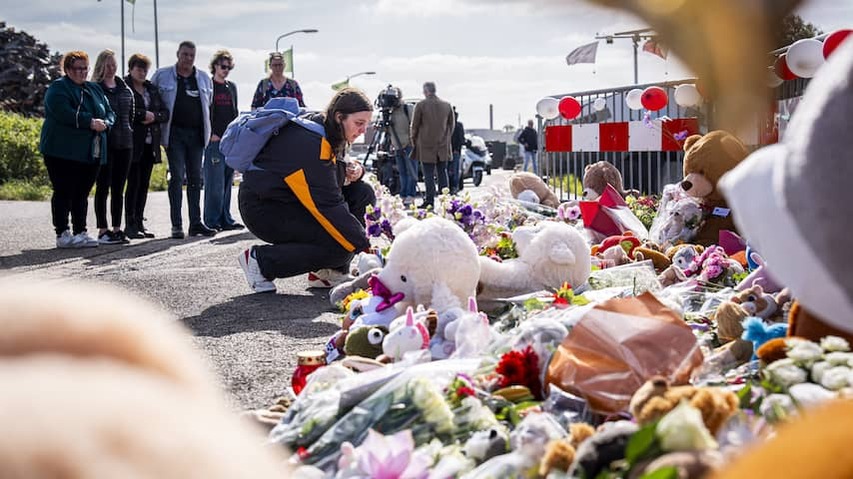
In the event of a missing person, everyone is alert and deeply sympathetic, especially when it involves children. We want to help, but sometimes we miss the mark. How can you support desperate loved ones, even if they remain so for years?
After large-scale searches this week, the bodies of the missing Jeffrey (10), Emma (8), and their father were found in a canal in Winschoten. This has turned a nightmare into reality for the relatives.
For many people, such a moment never comes, says Franck Wagemakers, policy advisor at Victim Support Netherlands. There are 30,000 reports of missing persons in the Netherlands every year. Often, someone is found quickly. But until someone returns, dead or alive, it is all speculation.
During the initial period of a disappearance, when everything is focused on the search, loved ones live between hope and fear. The longer it lasts, the harder it becomes. Every human being is resilient, and in the beginning, someone can still be combative and optimistic, says Wagemakers. But the longer it takes, the harder it is for those left behind. Resilience decreases, and administrative matters pile up.
We as a community are not always helpful, says Wagemakers. Perhaps a disappearance like that of Jeffrey and Emma makes you feel powerless and want to do something. Or you Google yourself into a stupor for the details.
It is human to want to interpret a mystery, says Victim Support. But it can also turn into sensationalism. “Googling social media profiles of the family or speculating and judging a lot. That absolutely does not help, and we really need to stay far away from that. Loved ones find that speculation very difficult.”
For example, there was a missing person case, which Wagemakers cannot go into detail about, in which there was a lot of speculation about the missing person’s marriage. “Stories start circulating, and the media can participate in that as well. The marriage was said to be bad. And he was seen at a gay cruising area. Others suggested that he was suicidal and that his wife should get on with her life. That doesn’t help.”
Victim for the second time
This behavior can lead to “secondary victimization,” explains Wagemakers. The loved ones are victims for the second time, but now of incomprehension and condemnation.
That speculation is also a way to feel safe ourselves. Wagemakers: “We invent stories to explain something difficult. Something *must* be wrong. If nothing is wrong, then something so bad can happen to us too. This way we can feel control or avoid fear.”
In the event of a missing person, someone is tossed back and forth between hope and despair, says Lisette van Kesteren. She is a psychologist at The Mental Move and specializes in loss and grief. “Despair is such an intense, all-consuming emotion. All hope seems lost until you hear that someone is really no longer alive. Sometimes that takes a long time and someone lives with that despair constantly.”
We as a community must recognize that great sadness. Making it smaller, soothing, relativizing, offering distraction: it often doesn’t help. Van Kesteren: “We call them grief veils. Unconsciously we want to cover up someone else’s pain. We say things like: ‘My neighbor also lost someone.’ Or: ‘It is God’s will,’ or: ‘Time heals all wounds.'”
Looking for causes or assigning blame is also such a grief veil: the police should have done better, or it is the fault of youth care. “It doesn’t change anything about the situation in which someone has lost their loved ones,” says Van Kesteren.
‘Do Not Organize A Silent Procession On Your Own’
After a disappearance, people often want to do something. “That is understandable,” says Wagemakers. “But always ask first: do those directly involved actually want this? In the chaos and stress of a disappearance, people sometimes don’t know what they need.”
That is why it is important to give those involved control. Because they have already lost it, Wagemakers argues. “Join in with what the family wants and what is already happening, and don’t go looking on your own. Or, if a body has been found, organize a silent procession or fundraising campaign yourself.”
Rituals can help, Van Kesteren knows. “You see people lighting candles and laying down stuffed animals. These are collective expressions of sympathy. That can be very comforting for those left behind and bereaved.”
But it is closely related to grief and loss. As a community, you don’t always know what you are doing right. “That is why it is so important to keep asking questions,” says Van Kesteren. “Realize that everything takes an enormous amount of energy in addition to the sadness. So support someone without asking anything in return or expecting thank yous.”